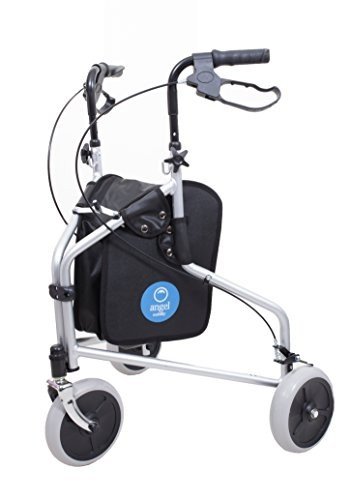The Most Pervasive Issues With Buying Mobility Scooter
A Comprehensive Guide to Buying a Mobility Scooter
Mobility scooters have actually ended up being an essential tool for lots of individuals looking to enhance their independence and mobility. With a huge selection of designs and features offered, picking the ideal mobility scooter can be intimidating. This short article provides a useful guide to help customers navigate their alternatives, evaluate their needs, and make a notified purchase.
Understanding Mobility Scooters
Mobility scooters are electric automobiles designed for individuals who experience mobility obstacles. They are especially useful for senior citizens, those with impairments, or individuals recuperating from injuries. Mobility scooters can vary widely in terms of style, features, and prices.
Kinds Of Mobility Scooters
Before starting a purchase, it's vital to understand the different kinds of mobility scooters offered:
Three-Wheel Scooters:
- Generally more maneuverable in tight spaces
- Lightweight and portable
- Perfect for indoor use
Four-Wheel Scooters:
- Offer greater stability and balance
- Ideal for outdoor use over various terrains
- Typically have a longer battery life
Foldable/Portable Scooters:
- Designed to be easily transported and saved
- Can typically suit the trunk of a cars and truck
- Suitable for those who take a trip frequently
Durable Scooters:
- Built to accommodate bigger individuals
- Often featured more robust functions for outdoor usage
- Typically geared up with larger batteries for prolonged range
Aspects to Consider When Buying a Mobility Scooter
1. Weight Capacity
Choose a mobility scooter that can support the user's weight. A lot of scooters have a weight limitation varying from 250 to 500 pounds. It is crucial to make sure that the scooter can accommodate the user conveniently.
2. Range and Battery Life
The range is how far the mobility scooter can travel on a single charge. Normal varieties vary between 10 to 30 miles. Consider the user's daily activities and pick a scooter with an appropriate variety.
3. Scooter Dimensions
Consider the size of the scooter, including its weight and dimensions. A more compact scooter may be ideal for narrow hallways and tight areas, while larger designs offer extra stability and comfort.
4. Terrain Capability
Examine where the scooter will mostly be used. If compact mobility scooters to travel mostly on pavement, a lightweight model may suffice. However, if the user requires to pass through gravel or unequal surfaces, consider a four-wheel scooter constructed for off-road use.
Top Features to Look For
Comfort
- Adjustable Seats: Look for scooters with cushioned and height-adjustable seats to guarantee convenience during travel.
- Armrests: These boost safety and assistance while browsing.
Security and Visibility
- Headlights and Taillights: Essential for nighttime use.
- Turn Signals and Reflectors: Improve exposure and safety while on the roadway.
User-Friendly Controls
- Joystick or Drive Controls: These need to be instinctive and easy to control.
- Easy-to-Read Displays: A control board that shows battery life, speed, and distance can boost the user experience.
Additional Features
- Storage Compartments: These offer added benefit for carrying individual items while on the go.
- Weather Protection: Consider models with rain covers or windscreens if used in variable weather.
Cost Considerations
When budgeting for a mobility scooter, prices can vary anywhere from ₤ 500 to over ₤ 5,000 depending on the design, features, and brand. Additional expenses might include:
- Extended Warranty: Protects against problems and can save cash in the long run.
- Accessories: Optional features, such as updated seats, lights, or storage solutions.
Feature
Cost Range
Standard Models
₤ 500 – ₤ 1,500
Mid-Range Models
₤ 1,500 – ₤ 3,000
High-End Models
₤ 3,000 – ₤ 5,000
Financing Options
Numerous retailers provide financing strategies, and some regional government efforts may offer grants or help for those in requirement. Investigate possible financial assistance with community resources or mobility service organizations.
FAQs about Buying a Mobility Scooter
What is the distinction in between a mobility scooter and a wheelchair?
Mobility scooters are motorized and permit users to browse separately, while wheelchairs might need physical assistance or manual operation.
How do I maintain a mobility scooter?
Routine maintenance involves checking battery life, cleaning up the scooter, and checking tires and brakes. Constantly refer to the user manual for specific guidelines.
Can mobility scooters be used inside?
Yes, numerous designs are developed for both indoor and outdoor use. Nevertheless, three-wheel scooters tend to be better fit for indoor navigation due to their tighter turning radius.
Are mobility scooters covered by insurance coverage?
Some insurance prepares cover a portion of the expenses for mobility scooters if they are considered medically essential. Contact your company for specific details.
How quickly can a mobility scooter go?
The majority of mobility scooters have a maximum speed varying from 4 to 8 mph. Nevertheless, the appropriate pace may vary depending upon local regulations.
Acquiring a mobility scooter can substantially improve one's independence and quality of life. By comprehending the types, functions, and expenses related to mobility scooters, prospective buyers can make knowledgeable choices that match their needs and preferences. Customization and thorough research are key to ensuring fulfillment with this important investment.
